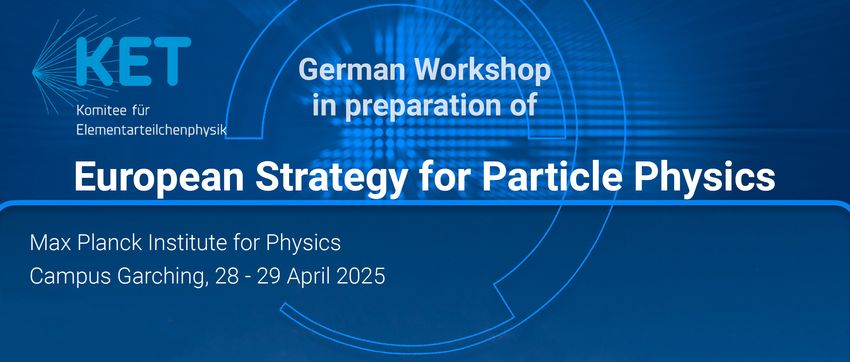The European Strategy for Particle Physics (ESPP) is an initiative launched by the CERN Council in 2005. The aim of the ESPP is a pan-European strategy for the future, developed jointly by all members. Recommendations from physicists from all over the world will be incorporated into the decision-making process. The current focus is set on the high luminosity upgrade of the LHC. For the future, the goal to develop and build a successor to the LHC is increasingly crystallizing and at the heart of discussions.
The position of the German community
The researchers organized in the German Committee for Particle Physics (KET) are committed to develop innovative and sustainable concepts to address the exciting open questions in particle physics. In the last two years, several workshops have been held where the German community has discussed future scientific priorities, technological concepts and possible implementation scenarios. The corresponding Statement by the German Particle Physics Community as Input to the Update of the European Strategy for Particle Physics was published a few weeks ago.
The report states that the German community supports the concept of a Future Circular Collider for electrons and positrons (FCC-ee) as the next flagship project at CERN. This project should be pursued with “highest priority” pending a “solid and affordable financial plan by CERN”. The FCC-ee will provide an excellent potential to explore the Higgs boson that might be key to answering some of the most fundamental open questions about our universe, as well as many other aspects of particle physics. Alternative concepts have also been investigated in case the FCC-ee should turn out not to be feasible. The detailed feasibility study of the FCC has also been very recently released and will be discussed at the workshop.
What will be discussed at the MPP?
The workshop at the MPP in Garching will primarily serve to discuss the input to the strategy with view of all inputs submitted so far – and, if necessary, to sharpen the priorities.All national statements and project proposals together with considerations from the scientific community at large will form the basis for discussion at the Open Symposium on Particle Physics, which will take place from June 23 to 27, 2025 in Italy. The positions discussed and agreed by the international particle physics community at this event will then be incorporated into the recommendations for the ESPP.
